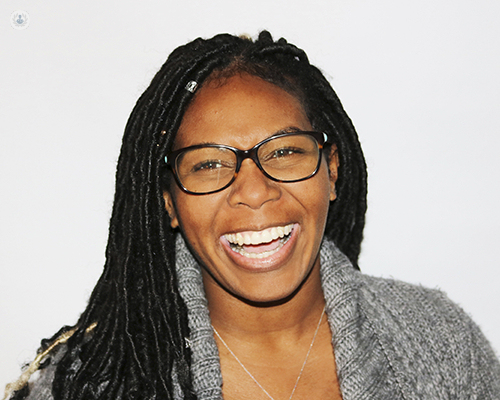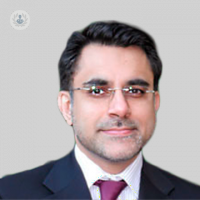Living with glaucoma: Long-term care
Autore:Glaucoma is a condition that gradually damages your eye’s optic nerve and destroys cells which are responsible for sending images to your brain. If left untreated, it will eventually cause blindness. Fortunately, successful long-term treatments exist that stop further deterioration of the optic nerve and cells. Mr Shabbir Mohamed has spent many years treating glaucoma patients, and here he explains how, with long-term care, you can continue to live a normal and full life.

Can I still lead a full life after being diagnosed with glaucoma?
Absolutely. The aim of treating patients with glaucoma is for them to be able to maintain their quality of life and live as normally as possible. Patients with glaucoma have a normal life expectancy and, with treatment, can carry out activities as they did before diagnosis.
What treatment options are available?
With all treatments, the goal is to relieve eye pressure and therefore, halt the progression of the condition. Depending on the stage of your glaucoma, your ophthalmologist may recommend the following:
- Eye drops – Most patients receive eye drops which need to be taken regularly to alleviate eye pressure.
- Tablets - Only a small proportion of patients receive these. Tablets are given for short-term use due to minor side effects that can occur during long-term usage. For example, they may be given to a patient for a short time while they wait for laser treatment or surgery.
- Laser treatment – Gentle and targeted laser is used when eye drops are not working well enough to reduce eye pressure. It has also been shown that laser treatment may be beneficial as first line treatment in certain types of glaucoma. Laser can also be used as a last line of treatment in some cases of very severe glaucoma.
- MIGS (minimally invasive glaucoma surgery) – This is an umbrella term for less invasive surgical procedures. An example of such a procedure is iStents. These have been designed to minimise the risk of complications as much as possible. In expert hands, they can work extremely well for the right patient.
- Cataract surgery – Even if the eye’s lens is relatively clear, cataract removal can be beneficial if the patient’s eyes are small and the lens is causing a physical effect inside the eye.
- Formal glaucoma surgery (trabeculectomy) – This involves using the natural ocular tissues to make a guarded valve to drain excess liquid and relieve the pressure inside the eye.
- Tube surgery – This procedure is used if a trabeculectomy doesn’t work or in some cases instead of a trabeculectomy. Like a trabeculectomy, the objective is to drain excess fluid from the eye to relieve pressure. It involves placing a silicone tube inside the eye connected to a draining plate.
While the a number of possible treatments may seem daunting, it’s important to remember that ophthalmologists, such as Mr Mohamed, will offer the most appropriate treatment depending on a careful and thorough assessment.
Will I likely need all treatment options at some stage?
The majority of patients are treated with eye drops for their entire lives and don’t need further treatment. Some patients’ glaucoma worsens and they do further treatments detailed above.
If your glaucoma is diagnosed quite late, you’re more likely to need one of the more invasive surgical options.
What daily lifestyle changes can I make to help prevent further vision loss?
In general, you should aim to uphold healthy lifestyle habits that help maintain optimal blood pressure. Evidence has shown that if you increase consumption of fruits and vegetables, you can reduce the risk of developing glaucoma. Regular exercise also helps to improve ocular health in general by lowering your blood pressure.
It’s beneficial to avoid excessive caffeine intake, smoking and alcohol. These can lead to the development of glaucoma in some individuals. Also, there is a genetic component involved in a person’s susceptibility to glaucoma. If there is strong family history, you’re more likely to have the condition also and lifestyle benefits may not stop it from developing.
In cases of severe glaucoma or having received surgery to treat glaucoma, a patient may be advised by their ophthalmologist to avoid some activities in the long term, not only after surgical treatment. These could be swimming (to avoid the risk of eye infections) or to avoid contact sports (to lower the risk of trauma to the eye). Your ophthalmologist will advise you based on your personal eye screening and treatment results.
Is research currently being done to discover a method to restore vision loss?
Glaucoma leads to the death of retinal ganglion cells, which are responsible for sending images to your brain, and these can’t be regenerated at the moment. There is currently research looking into the re-growth of these cells, but it’s in very early stages and unlikely to be possible in the near future.
This is why it’s important to identify glaucoma in its early stages. By visiting an ophthalmologist for a screening assessment, a specialist, such as Mr Mohamed, can check your eye health and give you the upmost quality treatment.
Regular eye screenings are important. Visit Mr Shabbir Mohamed’s Top Doctors profile to discover how his expertise, high-quality patient care and specialist knowledge will help maintain your eye health.


